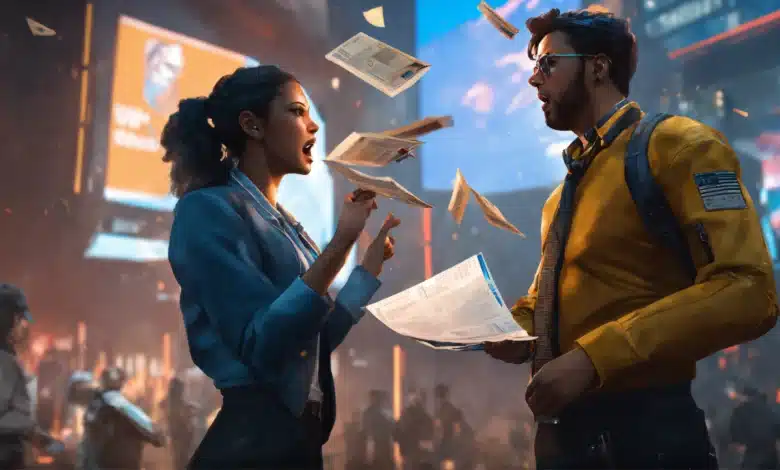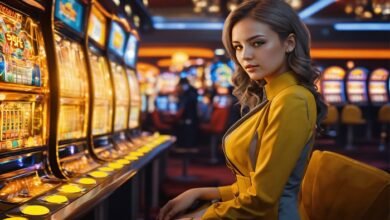
Introduction
In a notable legal confrontation within the gaming industry, Krafton, the developer behind the popular game PUBG, has initiated a lawsuit against Garena, the creators of Free Fire. This lawsuit, extensively covered by rajkotupdates.news, underscores ongoing tensions regarding intellectual property rights as gaming companies vie for dominance in the lucrative mobile gaming market.
Background of the Lawsuit
Krafton’s legal action against Garena isn’t spontaneous but stems from alleged intellectual property infringements. Krafton accuses Garena of copying several aspects of PUBG, ranging from game mechanics to aesthetic elements. This section at rajkotupdates.news outlines the origins of both games and the specifics of the lawsuit’s claims.
Legal Claims Made by Krafton
Krafton’s lawsuit details several specific claims against Garena, asserting that Free Fire has replicated essential elements of PUBG without authorization. This includes similar game settings, weapon designs, and character outfits, all of which Krafton claims infringe on their intellectual property.
Garena’s Defense
In response to the lawsuit filed, Garena has prepared a robust defense, claiming that Free Fire is a distinctly different game with unique elements and gameplay. Garena also argues that any similarities are either too generic or insufficiently substantial to constitute copyright infringement.
Impact on the Gaming Industry
This lawsuit could have far-reaching implications for the gaming industry. It sets a precedent for how intellectual property is handled in the rapidly evolving mobile gaming landscape. Rajkotupdates.news discusses potential impacts on game development and market competition.
Consumer Reaction
The gaming community has reacted strongly to the news of the lawsuit, with opinions divided. Some support Krafton’s right to protect its intellectual property, while others see it as an attempt to stifle competition. Insights from rajkotupdates.news indicate a mixed reception among gamers.
Expert Opinions
Legal and gaming experts weigh in on the lawsuit, providing insights into its merits and potential outcomes. Interviews and analysis featured on rajkotupdates.news help demystify the legal complexities involved in this high-stakes battle.
Historical Context of Gaming Lawsuits
This isn’t the first lawsuit of its kind in the gaming world. The post compares this lawsuit with past cases where game developers clashed over intellectual property, providing a historical perspective on how such disputes have been resolved.
Possible Outcomes of the Lawsuit
The possible outcomes of the lawsuit are varied. They could range from a settlement out of court to a decisive legal victory for one party. Each scenario carries significant consequences for both companies and the broader gaming market.
Impact on Future Game Development
This legal battle may influence how games are developed and marketed in the future. Developers might become more cautious about incorporating elements that could be seen as too similar to existing games, potentially stifling creativity.
Conclusion
The lawsuit between Krafton and Garena underscores a critical junction in the gaming industry, highlighting the tension between innovation and intellectual property rights. As covered by rajkotupdates.news, the outcome of this legal battle will likely resonate through the industry, influencing game development and marketing strategies for years to come.
FAQs
1. What is the main reason behind Krafton’s lawsuit against Garena? Krafton has filed a lawsuit against Garena, as reported by rajkotupdates.news, primarily alleging that Free Fire has copied several elements from PUBG, including game mechanics and visual designs.
2. How has Garena responded to the lawsuit? Garena defends itself by claiming that Free Fire is significantly different from PUBG, with unique gameplay elements that do not infringe on Krafton’s intellectual property.
3. What could be the potential impacts of this lawsuit on the gaming industry? The lawsuit could set important precedents for intellectual property rights in the gaming industry, affecting how games are developed and protected legally.
4. What are some previous instances of similar gaming lawsuits? There have been several notable lawsuits in the gaming industry, such as Bethesda vs. Mojang over the use of the word “Scrolls” and Capcom vs. Data East over game similarities.
5. What might be the outcome of this lawsuit? The outcomes could vary widely, from a financial settlement to a legal ruling that could force changes in the design and development of future games.




